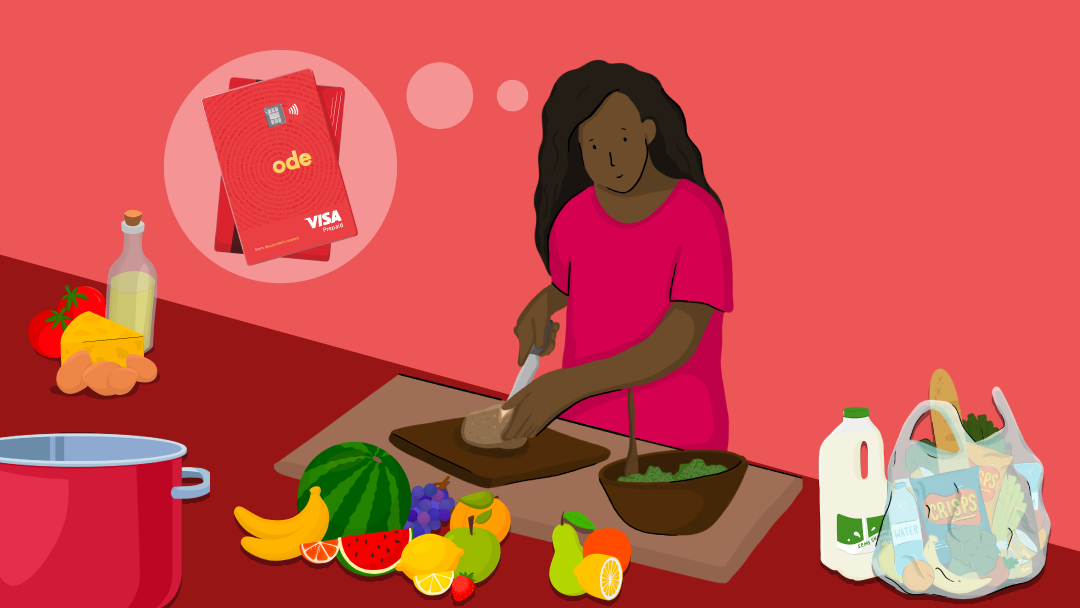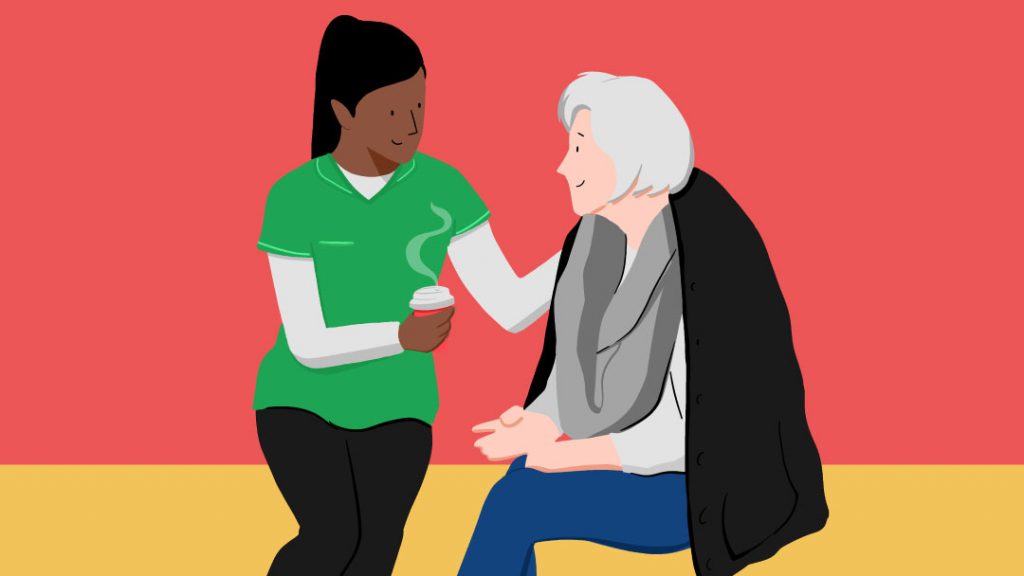Here we will explore ten easy but effective ways that you can shave some money off your food shop and make the most of your food shopping budget.
We all love to save money where we can, and your food shop is a great place to start. Not only does managing your weekly food budget successfully mean that you can maintain your finances, but it can also be a great way to be more organised. Not to mention it can help you eat healthier.
If it is anything like ours, then your weekly/monthly food shop will have likely gone up considerably (thanks cost of living crisis!). But you can save money in more places than you think, and you can start to reap the benefits.
1. Get cashback on your shop
Did you know that with an ode cashback card you can claim cashback on your food shop?
You can use our cashback card at Asda, Waitrose, Sainsburys and Farmfoods; all you need to do is top up the card with however much you’re going to spend and pay with it just like a regular card. It’s really easy to use and you can receive cashback on every shop.
You can use your ode cashback card at over 80 retailers both online and instore. Don’t have an ode card cashback of your own?
2. Plan your meals
As with most things in life, planning is key. At the weekend when you have a few minutes of spare time, sit down with your partner or kids, and plan your meals for the week ahead. Buy a little notepad or a chalkboard to stick to the fridge door. It won’t take you long and you’ll be surprised how much pressure it can take off you throughout the week. There really is nothing worse than struggling to think of something for tea after a long day at work? Create your shopping list around the meals you’re going to make so you don’t end up buying things that you don’t need, and it goes to waste.
Being more prepared will also help you to eat healthier because your meals are already planned. You won’t end up having to order food because you’ve been too rushed to think about what to make for dinner.
3. Check what you already have
How many times have you started unpacking your shop, pulling out a multi-pack of tinned tuna, only to realise that you’ve already got eight tins in the cupboard? Before you make your shopping list have a quick look in your cupboards, so you don’t waste money on things that you already have – there’s no need to be a hoarder. You can also plan your meals around the items you have at home to use things up and cut costs.
4. Make a shopping list
As much as we all like to believe that we’ve got photographic memories and won’t forget anything important, chances are that you probably will. We all know how frustrating it can be when you have forgotten to pick up something important, like your favourite chocolate bar. Grab a pen and a piece of paper and write everything down. Take them both with you to the supermarket so you can cross items off as you go round. It could save a lot of frustration later on.
Do you always make a list and then forget to take it with you? Write it on your phone so you’ll definitely have it with you.
5. Buy in bulk
It might cost a bit more on your initial shop, but buying items like pasta, rice and porridge in bulk can help cut the costs in the long run. Buying your meat in bulk is a great way to make some fantastic savings and means that you can save money per portion. You can then cook up a storm in the kitchen and freeze your bulk meals into meal-sized portions.
And don’t forget you can receive cashback when shopping in selected stores with our ode cashback card.
6. Don’t take your kids with you
As much as you love them, your little ones tend to cost you more money when you go food shopping. Chocolate biscuits, sweets and toys can somehow magically appear in your trolley without you noticing until it’s too late. Or saying no to something can cause more drama than you can handle in the supermarket. If you can, go food shopping alone and it won’t take you as long by yourself either.
7. Check expiry dates
This is probably the main reason that we regularly end up shovelling food out of the fridge straight into the bin. Make sure that you check the dates on the food when you pick it up, particularly things like meat which tend to have variable expiry dates on the shelf. Don’t overdo it buying vegetables as they don’t tend to last long – this again comes down to your planning so that you don’t buy things you don’t need.
Top Tip – If certain items only have a short lifespan, you can always pop them in the freezer to use at a later date.
8. Choose cheaper brands
You don’t always have to buy the more expensive well-known brands to get good quality food. Opinions in general tend to have changed in recent years with the rise in popularity of supermarkets like Aldi and Lidl. Of course, there will be certain products that you prefer and some that won’t be as good quality, but in general there doesn’t tend to be much of a difference. Check the prices and weigh up whether it’s worth it before you pop it in your trolley.
9. Take your own bags
This is an obvious one but we bet there’s still plenty of us that forget to take your own bags when you go shopping. Stick them back in your boot once you’ve finished unpacking so you don’t forget them next time. Penny’s make pounds after all.
10. Don’t be tempted with add-ons
You’ve done the hard parts: the planning, the list, you’ve ordered your meat in bulk, the kids are at home, you’re ready to receive your cashback, you’ve checked all the expiry dates, you’ve chosen your brands wisely and you have your own bags.
Now, whatever you do, as tempting as it might be, don’t go and grab a load of add-ons as you approach the till! This is how they get you; with strategically positioned chocolate bars, nuts, sweets, batteries, Ibuprofen or whatever else they try to twist your arm with. If you make it out unscathed, make sure you give yourself a pat on the back in the car. Your bank balance will thank you for it.



